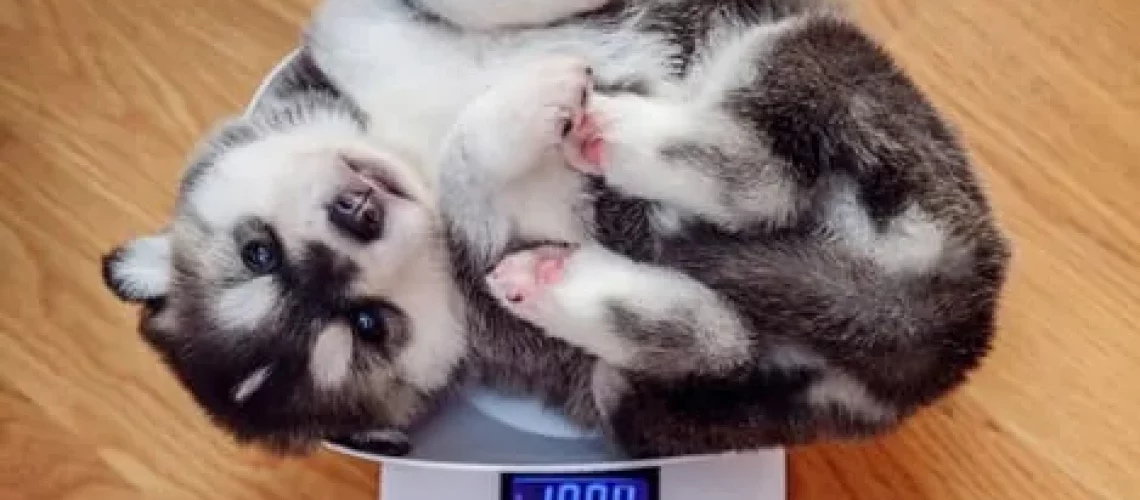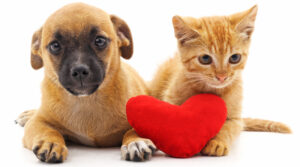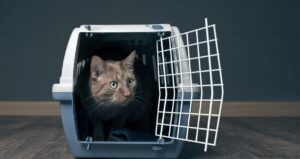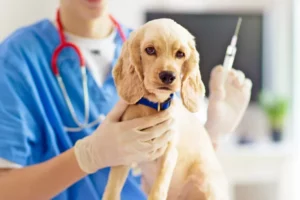Obesity in animal companions is a serious and increasing health hazard. However, weight management by the veterinary staff can help overweight patients live longer, healthier lives. Excess weight may worsen or sensitize cats and dogs to major medical consequences as well as influence longevity and quality of life.
Does my pet’s weight seem healthy?
Most importantly, be open and honest about your pet’s weight with your veterinarian. Your veterinarian may evaluate the weight and general health of your pet and offer advice on diet, exercise, and weight management.
Your veterinarian can also show you how to examine your pet’s body structure and feel certain body components to determine how healthy its body is. A healthy body composition is more important than a single figure on a scale when determining weight.
Is it beneficial for my pet to maintain a healthy weight?
Maintaining a healthy weight reduces your pet’s risk of developing diabetes, high blood pressure, respiratory illnesses, kidney problems, and some types of cancer. A reduction in weight may also reduce muscle, bone, and joint injuries caused by obesity. You can control arthritis pain by keeping your pet healthy. Maintaining a healthy weight gives your pet the best chance of living a longer, healthier, and pain-free life because excess weight can cut their life expectancy by more than two years.
What should I do if my pet is overweight?
There is no one-size-fits-all strategy or magic cure to help your pet lose extra weight, which should come as no surprise. Not all pets will respond well to the same treatment. A healthier lifestyle that strikes a balance between the calories taken and the calories expended by the body during typical activities and functions is necessary to achieving and maintaining a healthy weight. The risk of serious illnesses in your pet might be dramatically decreased, even with a small weight loss. A simple weight loss method involves reducing your pet’s calorie intake and increasing their activity level. Do not rush. A pet’s weight loss typically takes longer than its weight gain.
Prioritize your pet.
Make an honest evaluation of your pet’s health and weight in collaboration with your veterinarian. Does your pet suffer from any health issues that have been exacerbated or caused by being overweight? Weight gain can result in a number of health issues or diseases for pets. How can you minimize the risk? Think about your pet’s health and longevity instead of anything else.
There is nothing personal about it
The truthful evaluation of your pet’s weight and health by your veterinarian isn’t an indictment or evaluation of your weight or state of health or a claim about your capacity to care for your pet. Consult your doctor if you’re considering adopting a healthier lifestyle for yourself. Your veterinarian is committed to your pet’s health and is acting in the best interests of your pet. The well-being of your pet is more important than yours.
Commit to your family
The entire family must be committed to helping your pet lose weight and keep it off. A weight reduction plan won’t work if one member of the family feeds your pet more. Remind your family that there are many other ways besides feeding your family pet that they may show and demonstrate their love.
Feed a balanced, healthy diet
Eliminate table leftovers and calorie-dense goodies to lose weight; limit food treats and prioritize healthy meals and snacks; and resist the urge to satisfy an animal’s sad, demanding gaze. Using a particular bowl or food puzzle that makes it more difficult for them to gulp down their food, or utilizing toys that dispense food in small amounts, may help to slow your pet’s food consumption (be cautious to keep the overall daily amount of food within an acceptable amount, though). The health of your pet may also benefit from smaller, more frequent meals. Give your pet a diet rich in nutrients and balance. Ask your veterinarian which meal would be best for your pet’s health.
Make Goals
Together with your veterinarian, set realistic goals for healthy weight loss for your pet. Ask your veterinarian for advice on healthy nutrition and activity that will result in a realistic and acceptable pace of weight loss based on your pet’s general health, because rapid weight loss can have major health consequences.
“Prior to finding the best approach, it may be necessary to adjust the recommended diet or routine for each cat.”
What are the reasons my cat should lose weight?
Your cat’s chance of obtaining some significant medical issues can increase by as little as two pounds over its optimal body weight. Unfortunately, when a cat is overweight or obese, the question of when and how serious a condition will manifest in your cat due to the excess weight is now more important than whether it will. The following are a few of the common conditions linked to being overweight:
- Type 2 diabetes is a dangerous condition that an obese cat is three times more likely to develop than a cat of a healthy weight.
- Coronary artery disease
- (Arthritis) osteoarthritis
- A rise in the number of joint injuries
- High blood pressure
- Some cancers, particularly those that are intra-abdominal
Cats that are overweight or obese typically live shorter lifetimes than their leaner, normal-weight counterparts. Heavy cats are typically less active and lively, and they connect with their families less physically. We may mistake their sleepiness for their typical laziness because they prefer to lie around more, making it easier to miss early symptoms of the disease. We are just beginning to understand how dangerous and deadly a few extra pounds can be for both humans and our furry friends.
Track and keep track of the progress.
After you’ve established realistic goals for achieving and maintaining your pet’s healthy weight, remember to keep track of its growth. There will be successes and failures, as with all weight loss programs. You can assess what is working and what isn’t by keeping track of your pet’s progress. Then, you may change the program as necessary.
Food does not equal love.
More effective ways to show your pet your affection than giving them food treats include spending time with them and engaging in activities with them. More than food or treats, your pet craves your care, interaction, and attention. Try taking your pet for a walk or playing with them whenever they whine or demand food. A good relationship and way of life require essential elements such as praise, affection, and play. If you only give your pet food incentives sometimes and don’t engage with them, they’ll start to prefer food to your touch.
A quick walk is your dog’s best form of exercise. For the majority of dogs, 15 to 30 minutes each day is adequate. To be healthy and cognitively alert, larger or more energetic breeds may need up to an hour or more of rigorous movement every day. Try hiding the food or relocating it further away from where the cat sleeps because cats enjoy chasing and hunting. Use appropriate and secure cat toys, such as paper bags, flashlights, balls, or feather toys, to keep your cat entertained. Try other toys, and keep in mind that your cat’s current favorite toy may get dull with time.




